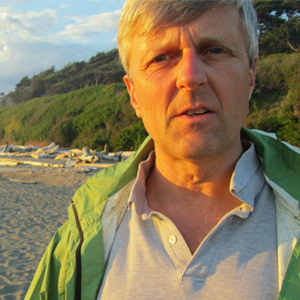
Image: File:RockMagnetist.tif, RockMagnetist (DCO visiting scholar), CC BY-SA 4.0, via Wikimedia Commons.
Did You Know … that extraterrestrial diamonds in meteorites preserve their history from before the Solar System formed?
Extraterrestrial diamonds are a common substance (not much bigger than a molecule) found in space, often in meteorites and stars. If you were to read the Wikipedia article about them, you could learn about their formation in our solar system, as well as outside of it, and the many experiments conducted to learn more about them.
Before September 2017, this article didn’t exist. But it does now thanks to hard work by Andrew Newell, the Deep Carbon Observatory’s Visiting Scholar. As User:RockMagnetist, Andrew created the article and uploaded the corresponding photo to Wikimedia Commons to illustrate it.
The quality of the article was recognized by the Wikipedia community and nominated for a Did You Know feature. Did You Know is a section of Wikipedia’s Main Page that highlights interesting articles for the millions that visit Wikipedia every day. The extraterrestrial diamonds article was so featured on October 21st, 2017 and received more than 10,000 page views that day!
Another of Andrew’s articles, about organic mineral, was featured in the Did You Know section in October.
Did You Know … that carbon-carrying minerals are known as organic minerals, except for some that were considered inorganic before 1828?
Thanks to the Deep Carbon Observatory (DCO), Andrew has access to sources that make writing these articles possible. DCO is eight years into a ten-year interdisciplinary project to explore the quantities, movements, forms, and origins of carbon deep within Earth.
Carbon is the fourth most abundant element in the universe by mass and a key component of all known life; it fuels most of our energy, and as carbon dioxide it is the primary cause of climate change on Earth. But most research of the element has focused on carbon near Earth’s surface, and we know surprisingly little about its physical, chemical, and biological behavior throughout most of the planet’s interior.
The study of deep carbon brings together a wide range of sciences committed to better understanding the Earth’s past, present, and future. There’s a lot to learn, but efforts in recent years have yielded a great deal of knowledge with far-reaching implications.
When people want to learn about science and the world around them, Wikipedia is often their first stop. As a predominantly volunteer-written project, however, its topic coverage can be uneven and important topics can be underdeveloped, too technical, or rely on low quality or outdated sources. Even when a knowledgeable editor wants to improve an article, they may be unable to access the best sources on the subject, which are so often trapped behind a paywall.
That’s where Wiki Education comes in. Through our Visiting Scholars program, we connect experienced Wikipedia editors with universities and libraries looking to expand the reach of their collections. Through the program, Wikipedians receive access to academic sources and, in exchange, improve Wikipedia’s coverage of topics of interest to both parties.
Through his Visiting Scholars connection with DCO, Andrew has access to 9,000 DCO-specific publications as well as remote access to the full suite of the University of Rhode Island’s library resources, including ebooks, journals, digital media, and well over 200 databases. He continues to do great work, editing a wide variety of articles related to deep carbon research.
To learn more about the current Visiting Scholars, click here. You can also follow along with Andrew’s progress here. For more information, see our Visiting Scholars page or reach out to contact@wikiedu.org.
